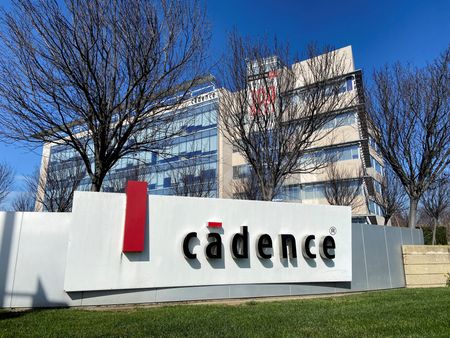By Stephen Nellis
(Reuters) – Cadence Design Systems on Wednesday introduced the latest version of supercomputer based around a custom computing chip designed to speed up the creation of other computing chips and the software that will run on them.
Cadence makes software that Nvidia, Apple and many other companies use to design chips with billions of transistors, the tiny on-off switches that make computers work. That design process can take a year or more.
Companies like Nvidia, whose software offerings are as important to its overall business as its chips, do not want to wait that long to start writing code for the chips.
The two upgraded systems Cadence introduced on Wednesday, called Palladium Z3 and Protium X3, create a virtual version of a chip to start writing software while waiting for the physical chip to come back from the factory. Such emulation has become a key reason tech companies can deliver products at a faster pace.
“These systems are no good without software,” Cadence CEO Anirudh Devgan said in an interview with Reuters. “The general public doesn’t realize how critical these tools are to the design of all these electronics.”
Cadence executives said Nvidia is already testing some of the new Cadence systems that can emulate chips twice as large as the previous generation of systems, which Nvidia used to design its just-announced Blackwell chips.
“Palladium is the only appliance that’s more important to me than the refrigerator,” Nvidia Chief Executive Jensen Huang said at an event in Santa Clara, California, announcing the new Cadence systems. “It is the single most important appliance in my life. We are the largest installation of Palladiums anywhere.”
The heart of Cadence’s Palladium emulation systems is itself a custom computing chip that Cadence used its own tools to design. The chip is as large and complex as some of Nvidia’s AI chips.
“For emulation you need to design your own chip, and we have a 10-year lead on anybody else who even attempts to design their own emulator,” Devgan said.
(Reporting by Stephen Nellis in San Francisco; Editing by Bill Berkrot)





